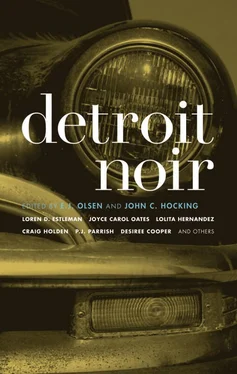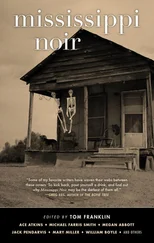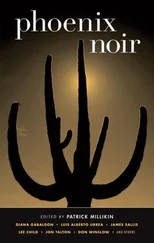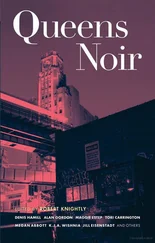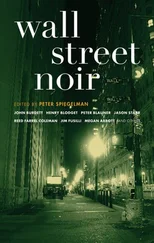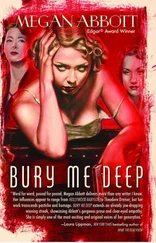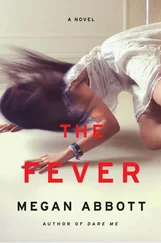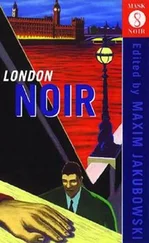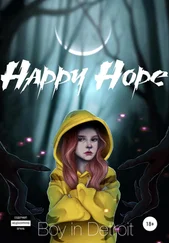Megan Abbott - Detroit Noir
Здесь есть возможность читать онлайн «Megan Abbott - Detroit Noir» весь текст электронной книги совершенно бесплатно (целиком полную версию без сокращений). В некоторых случаях можно слушать аудио, скачать через торрент в формате fb2 и присутствует краткое содержание. Город: New York, Год выпуска: 2007, ISBN: 2007, Издательство: Akashic Books, Жанр: Детектив, на английском языке. Описание произведения, (предисловие) а так же отзывы посетителей доступны на портале библиотеки ЛибКат.
- Название:Detroit Noir
- Автор:
- Издательство:Akashic Books
- Жанр:
- Год:2007
- Город:New York
- ISBN:978-1-933354-39-2
- Рейтинг книги:3 / 5. Голосов: 1
-
Избранное:Добавить в избранное
- Отзывы:
-
Ваша оценка:
- 60
- 1
- 2
- 3
- 4
- 5
Detroit Noir: краткое содержание, описание и аннотация
Предлагаем к чтению аннотацию, описание, краткое содержание или предисловие (зависит от того, что написал сам автор книги «Detroit Noir»). Если вы не нашли необходимую информацию о книге — напишите в комментариях, мы постараемся отыскать её.
delivers unforgettable tales that capture the city’s dark vitality.
Includes stories by: Joyce Carol Oates, Loren D. Estleman, Craig Holden, P.J. Parrish, Desiree Cooper, Nisi Shawl, M.L. Liebler, Craig Bernier, Joe Boland, Megan Abbott, Dorene O’Brien, Lolita Hernandez, Peter Markus, Roger K. Johnson, Michael Zadoorian, and E.J. Olsen.
Detroit Noir — читать онлайн бесплатно полную книгу (весь текст) целиком
Ниже представлен текст книги, разбитый по страницам. Система сохранения места последней прочитанной страницы, позволяет с удобством читать онлайн бесплатно книгу «Detroit Noir», без необходимости каждый раз заново искать на чём Вы остановились. Поставьте закладку, и сможете в любой момент перейти на страницу, на которой закончили чтение.
Интервал:
Закладка:
Elliot broke the uncomfortable silence.
“’S okay, mate, I’m living out the rest of my days the way I want to,” he said, producing a genuine half-smile on his face. I looked at him closely, trying to see any sign of a man who was patronizing and didn’t.
“I’m … I’m sorry,” I said, not really knowing what I was saying.
“My father grew up listening to Motown music,” Diana began, thankfully moving the subject in another direction. “I guess I did as well,” she said, lifting the pall out of the air with her smile. “The words, the beats, the singers, and the way they danced, they were all so … so magnificent. I remember ’aving always ’ eard this music when I was young.” Diana looked around lovingly. “’ e and my mum were always singing and dancing to this music.” At this she threw her left hand on her hip and stuck her right arm out with her hand up like a crossing guard. She began shaking her hips to an unheard beat. “ Stop! In the name of love, bee-fore you break mah heart, ” she sang. She didn’t sound like Diana Ross. She sounded like a British teenager trying to sound like Diana Ross.
Behind me a couple of my students finished the song off for her, doing a pretty fair job of sounding like TLC trying to sound like the Supremes.
“ Think it oh-oh-ver. ”
Elliot tilted his head and began nodding to the beat, his eyes glazed in dreamy memories. Looking at his face, I saw in it his love for the music. Elliot looked a lot less sick than he had when I first laid eyes on him. What was he seeing in his mind’s eye — Diana Ross singing on The Ed Sullivan Show ? Or was he possibly reminiscing about himself and his wife during a younger, happier time? What was it like to experience the Motown Sound over in merry old England? I wondered. Whatever he was thinking about, it made a difference on his face immediately, and I was thankful for that.
“This was a place my dad always wanted to visit. ’ e always talked about coming ’ ere one day with my mum. When ’ e took ill, our family decided that ’ e’d get to see some a the places ’ e always wanted to,” Diana said proudly as she massaged her father’s shoulders. “We got the money together and flew ’im over. My mum couldn’t make the trip. She’s at ’ome with my sister and brother. I took some time off from school ’cause ’ e needs someone to be with ’im. We decided that this was one of the things that dad would see …” Diana said, trailing off.
My students all sighed.
“That is sooo cool,” I heard a couple of them say.
“This place ’as meant a lot to me. Being ’ ere, in this city, in this ’ouse … I feel like I’m standing in some sacred or ’oly place. Ya know, when I was a young child, I used to look at pictures of this building in old magazines that my parents used to keep back ’ome,” Diana said with a voice that reverberated with real awe.
I was in awe as well, but for different reasons. I was trying to work out in my mind why anyone would want to come to Detroit. I was someone who couldn’t wait to leave and generally dreaded coming back. My mind kept flipping to the question: If I only had a couple of moments left on this earth, where would I go? Detroit was right up there, sandwiched between Bosnia and Haiti on my list of gotta-see destinations! What about the Grand Canyon, Africa, the Alps, or taking a swim in the Caribbean, where the water is turquoise and the temperature of bath water? My God, I could think of so many other things to do and certainly other places to see.
“Hitsville?” I said.
“Ummm-huh, ’itsville, Motown, Dee-troit, Michigan. I know Detroit, Michigan doesn’t show up on a lot of travel brochures, but ya should see ’ow many people travel to Liverpool all the time!” Diana said plainly, as she was obviously picking up on my amazement. “I mean, I know a lot of people who travel from England to Memphis every year, just to visit Graceland!” Now it was her turn to be incredulous.
“Yeah, and that’s just the place where Elvis died,” Elliot said.
“Different stuff means different things to people, don’t it, Mr. Blake?” one of my kids said.
“Some people used to say: Diff’rent strokes for diff’rent folks ,” Elliot added, grinning knowingly at me.
“Ya know, for people who cared, for people who loved the artists and the music, there’s bunches to see and do ’ ere. My dad wants to see the places where they grew up — to walk where they walked, eat where they ate. ’ e wants to see and feel what made the music,” she said happily.
What made the music.
What made the music?
That statement clung to my thoughts suddenly. Yes, what about this city got the people to sing and harmonize the way they did? You know, like certain places out west in this country inspired beach music, yet nothing else sounded like Motown. Berry Gordy, a Young African American Male (this group of adjectives tends to send people scurrying to their statistic sheets on drugs, crime, and death) who worked in a factory and lived in the city where I was born, decided that the music that he would create would have a certain sound. He did whatever it took to get it done. In creating that Motown sound he affected a city, a generation, and countless lives. In the process of making music, he not only affected the lives of the people he knew but the lives of people he would never meet — people from half a world away.
I was stunned at the significance of that revelation.
I remembered looking at the 45s that my parents owned. The shiny black disc, larger, more pliable, and much less foreboding and antiseptic than the metallic-looking CDs that we listen to today. The funny-shaped little yellow thingy that you popped into its center to play it on the stereo, that was surrounded by the blue label with a little map of Detroit with the red star, showing the entire world where both I and the Motown Sound were born. People who otherwise may have never given Detroit a second thought discovered the city that way, through hearing the music. Young American soldiers found respite as they listened to it while they lived and some died in murky rice paddies and jungles far away from the streets and the house parties of their youth.
There are many times that I look around this city and see nothing other than burned-out and dilapidated old neighborhoods. Neighborhoods filled with homes and buildings whose usefulness has become nothing more than insidious schemes. Lately, whenever I drive around the city where both of my parents as well as all of their children were born and raised, I no longer see the city of my youth, the one that once vibrated — literally — with sounds. The coffee-and-cream voices of Marvin and Tammy crooning, Ain’t no mountain high enough , that wafted up from the convertible Deuce-and-a-Quarters and finned Caddies that rolled up the streets. They are now replaced with hoopties that pump out Jay-Z as he tells me about Big Pimpin’ , while his sampled soundtrack, that measures 8.5 on the Richter scale, rattles the windows of the homes that are left standing. I see a city that I once loved creeping along in its fifth renaissance, a town trying to find an identity without the virtue of direction. A town that reflects its citizens, or did its citizens reflect the town? Am I black, African American, or a person of color? Am I angry, upwardly mobile, or just a sellout? A playa, a hoe, or a man? A sinner or saint? Who or what was my town right now? Did my perspective allow me the blessing to care?
Elliot saw none of these things. For Elliot, this wasn’t Detroit, 1999. It was Motown, circa 1960s. Elliot and Diana saw the specters of a lost time that brought joyful memories to their minds and warmed their hearts. Elliot saw the town that spoke to his teen and young-adult years, producing the perfect aphrodisiac to woo the love of his life and eventual mother of his children. He saw Detroit — pre-riot — when downtown radiated with life; when groups with names like The Temptations, The Marvelettes, and The Miracles danced — in the Motown style — in suits and shimmering dresses; when every Friday night the Fox Theatre presented the Motown Review, the proving ground where young men and women perfected the love songs that they performed on street corners and school talent shows. Motown, the city that nurtured the hope that they would be the next Smokey or Marvin, or that their words would join “The Tracks of My Tears” or “Love Child” on the airwaves that floated even across an ocean to waiting ears. A glow rested on Elliot’s face, replacing the shroud of death that had earlier hung on him like a ten-dollar suit. I thought of something from the Bible: Rejoice young man in thy youth . That was what Elliot was right then, this scripture transformed into flesh.
Читать дальшеИнтервал:
Закладка:
Похожие книги на «Detroit Noir»
Представляем Вашему вниманию похожие книги на «Detroit Noir» списком для выбора. Мы отобрали схожую по названию и смыслу литературу в надежде предоставить читателям больше вариантов отыскать новые, интересные, ещё непрочитанные произведения.
Обсуждение, отзывы о книге «Detroit Noir» и просто собственные мнения читателей. Оставьте ваши комментарии, напишите, что Вы думаете о произведении, его смысле или главных героях. Укажите что конкретно понравилось, а что нет, и почему Вы так считаете.
